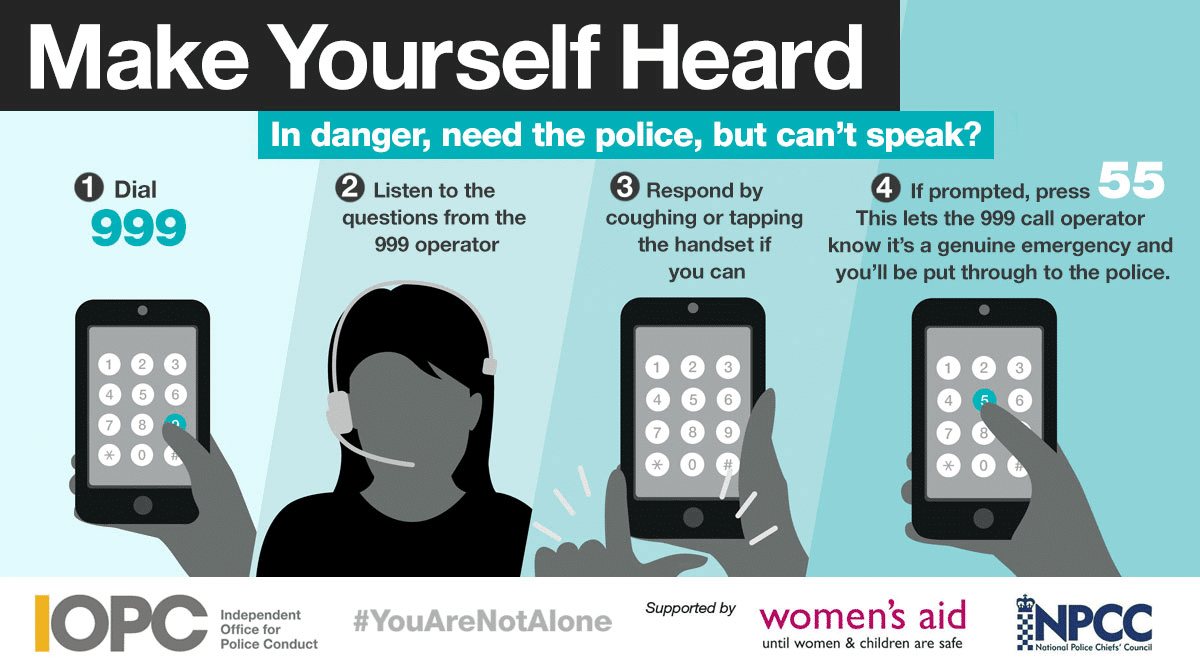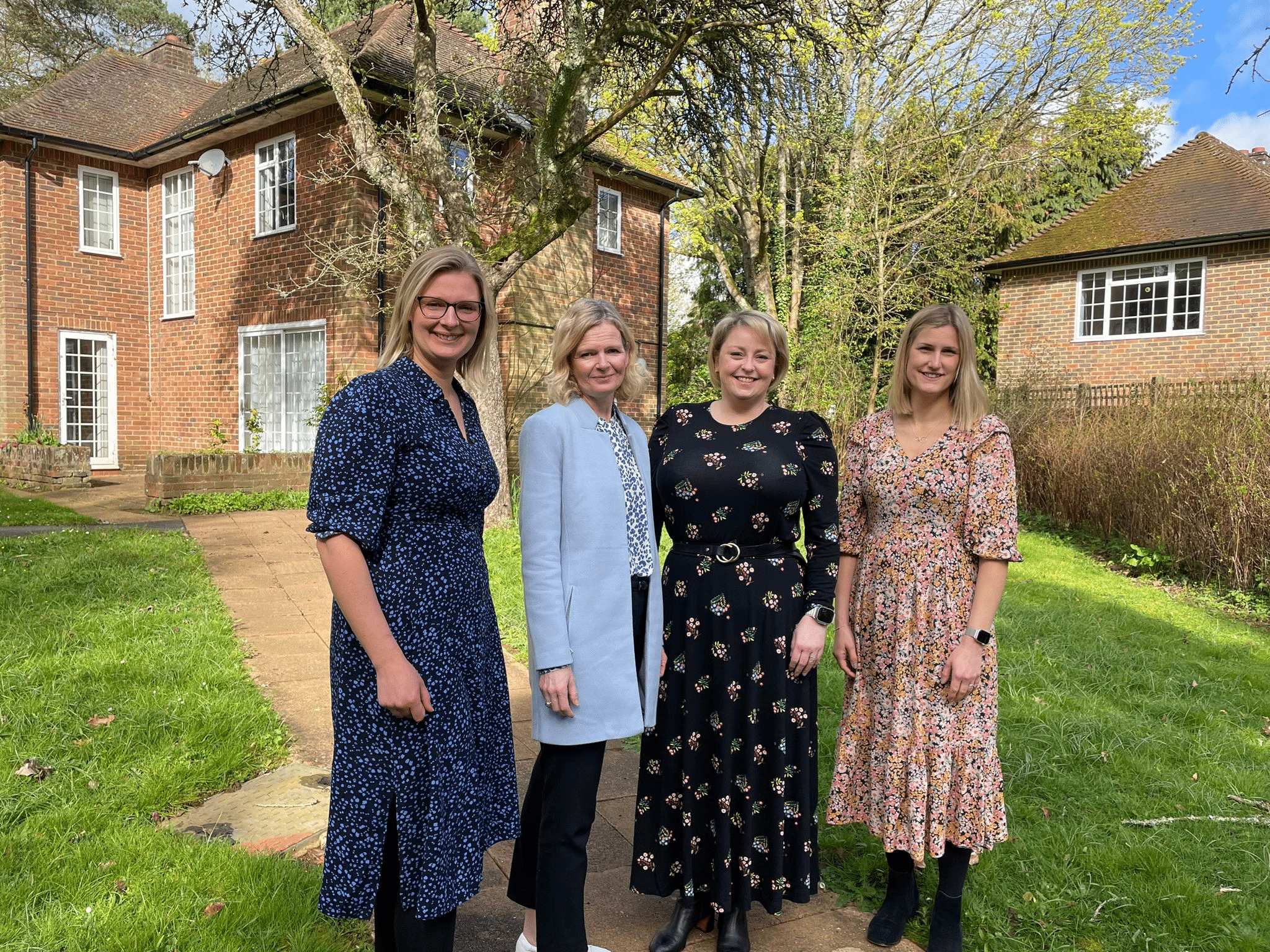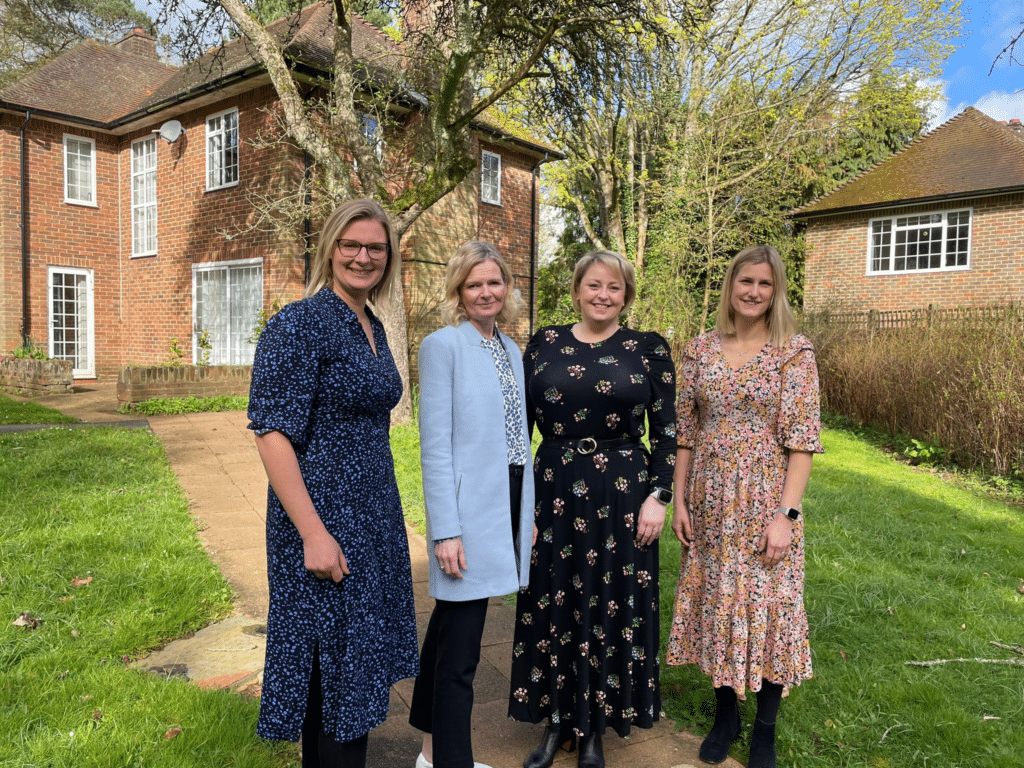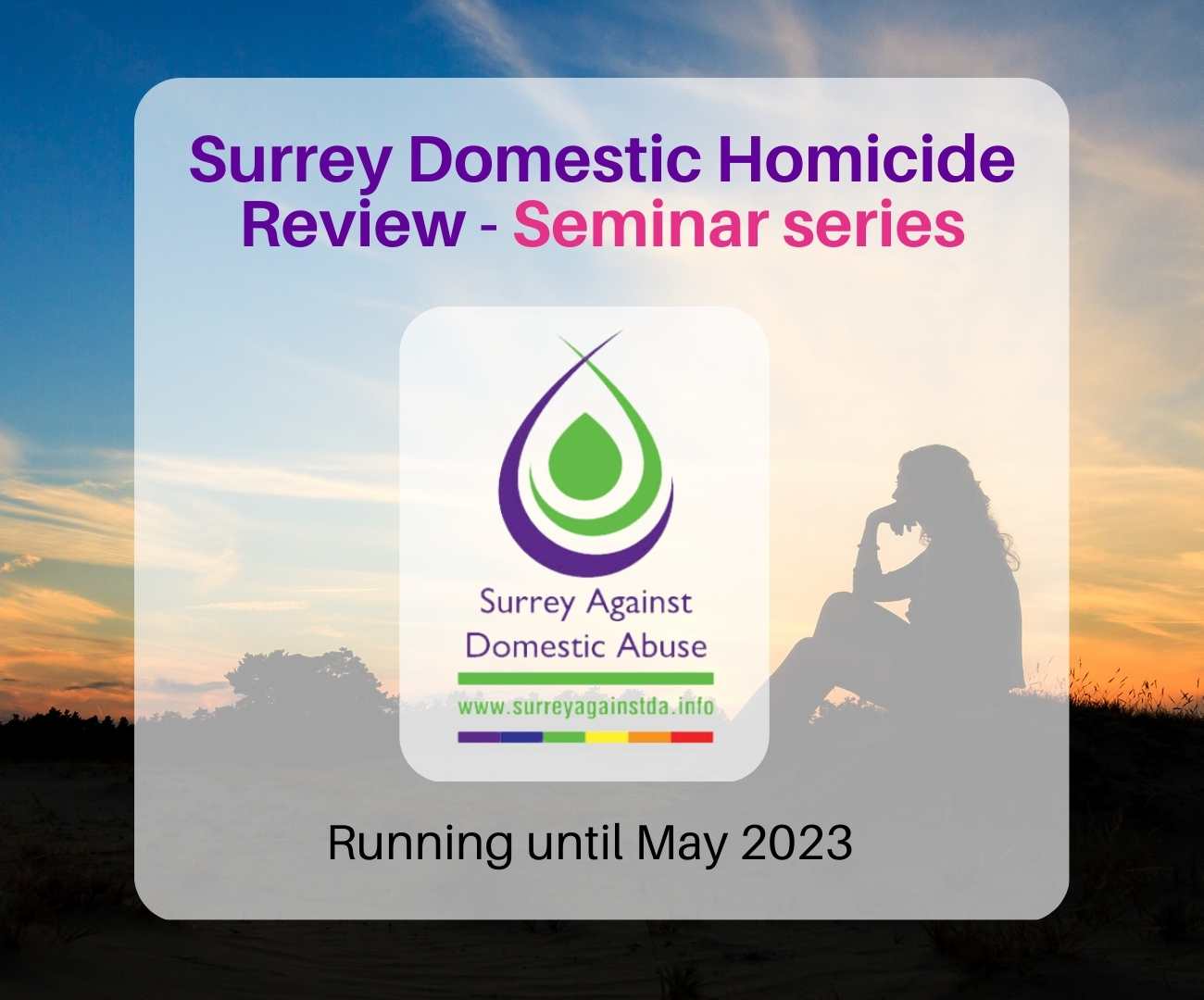A two-digit number can help save lives in an emergency, Surrey’s Police and Crime Commissioner has said.
Lisa Townsend has urged those who are unable to speak while calling 999 to use the Silent Solution to inform police of a genuine emergency.
The protocol allows people calling the emergency services to soundlessly press 55, alerting call handlers that they’re in trouble without them having to say a word.
Police may not be dispatched if a caller who has dialled 999 remains silent, although Surrey Police will always phone back when there is no communication on a call.
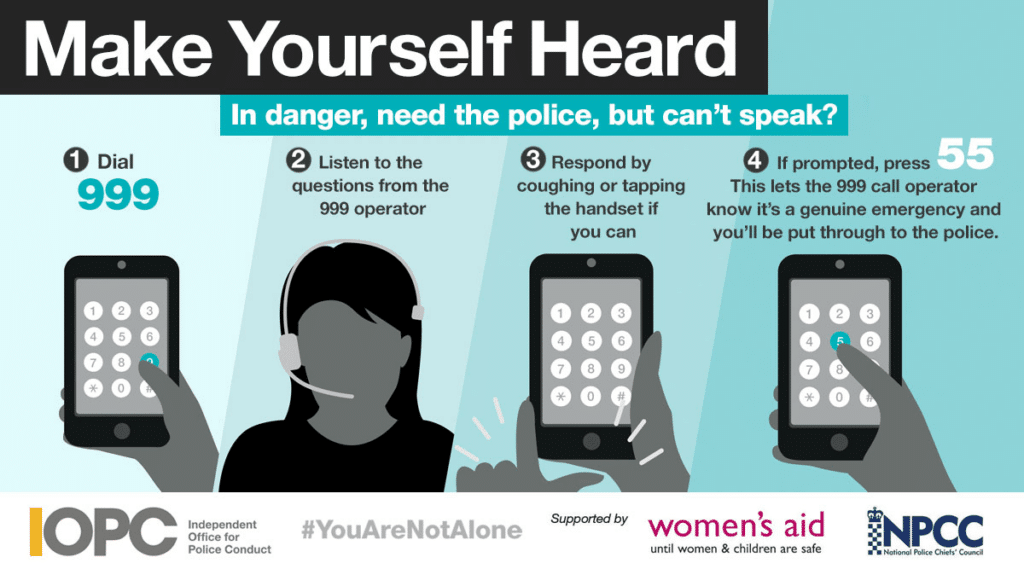
Lisa said those who are suffering domestic abuse may be among those who would benefit from being aware of the Silent Solution.
Domestic abuse can include, but is not limited to, coercive control, physical violence, emotional, sexual or financial abuse, and harassment and stalking.
Reducing violence against women and girls is a key priority in Lisa’s Police and Crime Plan.
She said: “Some of those who are suffering at the hands of a domestic abuser may be unable to openly speak if they need to call 999, perhaps because they’re in grave danger.
“That’s why it’s absolutely crucial for us to raise awareness of the 55 service.
“I’ve seen rumours on social media suggesting that when you dial the number, police can track you automatically via your phone. This is not true, and it’s so important that callers know that.
“What is true is that, when 55 is dialled, the call handler will know someone may be in real danger, and they’ll do their utmost to understand the situation and dispatch officers.
“When a person dials 999, they will initially be asked what service is required. If they press 55 during that initial call, it will be relayed to a police call handler, and the operator will say that 55 has been detected.
“Call handlers across the country are specially trained to deal with this situation. They will make attempts to communicate with the caller using button presses – for example, to press a key twice for ‘yes’.
“They will ask anyone using the 55 service to stay on the line if they’re able and communicate however they can, while ensuring their safety comes first.
“During the call, they’ll also be listening for any noises, such as a disturbance, in the background.
“This system is effective, but only if members of the public know and understand how it works.
“To those who are suffering – you are not alone. Please come forward if you can and allow Surrey Police to help you.”
